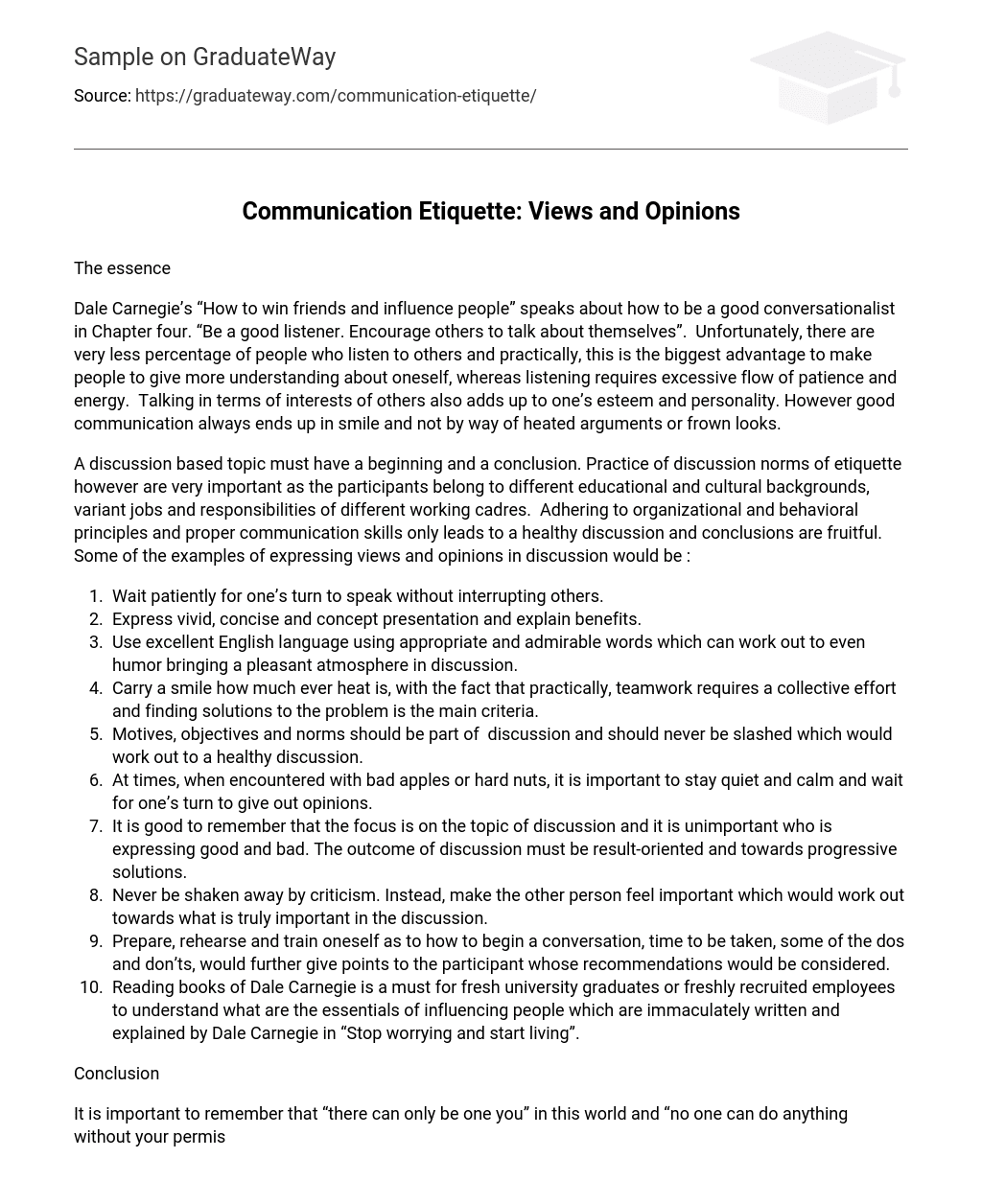The Essence
Dale Carnegie’s How to Win Friends and Influence People” discusses how to be a good conversationalist in Chapter Four. He advises, “Be a good listener and encourage others to talk about themselves.” Unfortunately, very few people actually listen to others. However, listening is the biggest advantage one can have in making others understand oneself. It requires an excessive amount of patience and energy. Speaking about the interests of others also adds to one’s esteem and personality. Good communication always ends with a smile, not heated arguments or frowns.
A discussion-based topic must have a clear beginning and conclusion. It is crucial to practice proper etiquette when engaging in discussions, especially since participants come from diverse educational and cultural backgrounds, hold different jobs, and have varying levels of responsibility. Adhering to organizational and behavioral principles while utilizing effective communication skills leads to productive discussions with fruitful conclusions. Examples of expressing views and opinions during a discussion include:
- Wait patiently for your turn to speak without interrupting others.
- Express concepts vividly, concisely, and explain their benefits.
- Use excellent English language with appropriate and admirable words. This can even include humor to bring a pleasant atmosphere to the discussion.
- Keep a smile on your face no matter how heated the discussion becomes. Remember that teamwork requires collective effort and finding solutions is the main goal.
- Motives, objectives, and norms should be part of the discussion and should never be dismissed. This will lead to a healthy conversation.
- If encountering difficult individuals, stay quiet and calm until it’s your turn to give opinions.
- Remember that the focus is on the topic of discussion rather than who expresses good or bad ideas. The outcome must be result-oriented towards progressive solutions.< li>< li>Never let criticism shake you. Instead, make the other person feel important which will lead to what’s truly important in the discussion. < li>< li>Prepare yourself by rehearsing how to begin a conversation, timing yourself appropriately while keeping in mind some dos and don’ts. These points will further enhance your recommendations during discussions. < li>< li>Fresh university graduates or newly recruited employees must read Dale Carnegie’s books such as Stop worrying and start living” which immaculately explains essential ways of influencing people.
Conclusion
It is important to remember that there can only be one you in this world and no one can do anything without your permission. This means you should not be a part of Tom & Jerry” or “Cat & Kitten”. Instead, stay true to your profession and personality, which is sufficient to gain recognition even among thousands. One should never howl among wolves; instead, project oneself with honest and dutiful motives and stay motivated at all times in the working environment.
References
- Communicating Change—The Essentials. Accessed on September 10, 2007.
- Discussion Skills for Tutorials & Seminars. Accessed on September 10, 2007 from http://www.lc.unsw.edu.au/onlib/disc.html.





